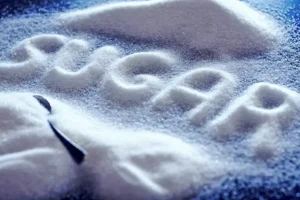
With these tests, the doctor could find evidence of diabetes, which will require specialized treatment. If a patient has a concurrent illness or condition along with ketoacidosis, the next steps may need to be different. Breath that has a fruity or acetone-like scent may be a sign of ketosis from your diet, DKA, HHS, excessive alcohol use, or liver disease.
How Does Alcohol Withdrawal Affect Treatment?

Diabetic ketoacidosis, or DKA, is a complication of diabetes, especially type 1 diabetes. Anyone thinking about trying a keto diet should speak with a doctor first. It is not safe for everyone, including those with liver failure, pancreatitis, and individuals already living with high cholesterol. Diabetes is not the only condition linked to breath that smells of acetone.
Understanding Alcohol Use Disorder

This case demonstrates the importance of considering AKA in the differential diagnosis of a patient presenting with non-specific symptoms, significant metabolic acidosis and a history of alcohol excess. It is essential to differentiate AKA from DKA to ensure that inappropriate insulin administration does not occur. The key tenants to management of AKA include fluid resuscitation and electrolyte correction. AKA can be an unrecognized cause of patients presenting with a severe metabolic acidosis, including the presence of ketones. It should be suspected in any patient who has a history of chronic alcohol dependency, malnutrition or recent episode of binge drinking [1]. Alcoholic ketoacidosis is a metabolic complication of alcohol use and starvation characterized by hyperketonemia and anion gap metabolic acidosis without significant hyperglycemia.
Long-term Alcohol Use Management
All remaining papers were retrieved and the reference lists hand searched for any additional information sources. If you believe you are experiencing HHS, contact a healthcare provider or go to the emergency room immediately. Calcium oxalate crystals in the urine also suggests ethylene glycol poisoning. While following the diet, a person should ensure that they consume enough liquids and electrolytes. Knowing about DKA and being able to recognize its symptoms can save a person’s life. The American Diabetes Association (ADA) advises people to not exercise if they have signs of DKA and to seek medical assistance immediately.

As your body breaks down food and fat in different ways, it releases chemicals that are then expelled when you breathe out. In some cases, these chemicals can cause a fruity or acetone smell. Learn more about fruity breath—including when your fruity breath should cause you to seek out medical attention. If symptoms progress without treatment, the person may lose consciousness and experience a coma. Being able to distinguish AKA from DKA is essential for healthcare professionals because proper treatment depends on accurate diagnosis. To ensure the best possible care for you or your loved ones, it is important to be aware of the signs and symptoms of these two conditions and seek help when needed.
- Often, blood alcohol levels are no longer elevated when patients present with alcoholic ketoacidosis.
- However, if there is too much glucose in the blood and too little in the cells — as can happen with diabetes — ketone levels can rise too high.
- During starvation, there is a decrease in insulin secretion and an increase in the production of counter-regulatory hormones such as glucagon, catecholamines, cortisol, and growth hormone.
- Being able to distinguish AKA from DKA is essential for healthcare professionals because proper treatment depends on accurate diagnosis.
- People with liver disease can experience fruity breath, but it’s a bit different.
- Your journey to better health starts with understanding the treatment and management options available for alcoholic ketoacidosis.
Ketones provide some energy to cells but also make the blood too acidic (ketoacidosis). This ketoacidosis is similar to the ketoacidosis that occurs in diabetes except that, unlike in diabetic ketoacidosis, blood glucose levels are low. Alcoholic ketoacidosis (AKA) is a clinical condition primarily affecting individuals with a history of chronic alcohol use or binge drinking.
- An altered level of consciousness should prompt consideration of alternative diagnoses such as hypoglycaemia, seizures, sepsis, thiamine deficiency, or head injury.
- Drinking more water may help control the fruity scent, but there’s no way to prevent it while following these types of diets.
- Your cells need insulin to use the glucose in your blood for energy.
- People who exhaled higher levels of carbon dioxide were more likely to have high blood glucose levels.
- Growth hormone can enhance precursor fatty acid release and ketogenesis during insulin deficiency.
Neurologically, patients are often agitated but may occasionally present lethargic on examination. Alcohol withdrawal, in combination with nausea and vomiting, makes most patients agitated. However, if an AKA patient is lethargic or comatose, an alternative cause should be sought. All chronic alcohol misusers attending https://ecosoberhouse.com/ the ED should receive intravenous B vitamins as recommended by The Royal College of Physicians.23 Strenuous efforts must be made to exclude concomitant pathology. Wrenn et al found altered mental status in 15% of patients, attributable in all but one case to hypoglycaemia, severe alcohol intoxication, or infection.

Ethanol metabolism
The next important step in the management of AKA is to give isotonic fluid resuscitation. Dextrose is required to break the cycle of ketogenesis and increase insulin secretion. The dextrose will also increase glycogen stores and diminish counterregulatory hormone levels. It is essential to administer thiamine before any glucose administration to avoid Wernicke’s encephalopathy preci[itation.

A person who consumes large amounts of alcohol may not have a healthful diet or eat enough food to provide their body with energy. Studies suggest that the amount of acetone on a healthy person’s breath correlates with the alcoholic ketoacidosis smell rate of fat loss. If a person follows a ketogenic diet to lose weight, they may have a slight smell of acetone on their breath. If the body cannot get its energy from glucose, it starts burning fat for fuel instead.
No Comments
Be the first to start a conversation